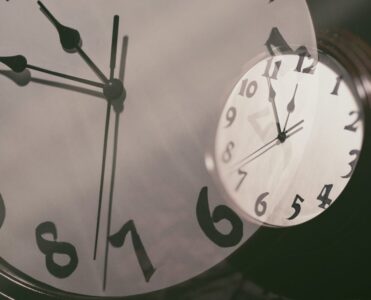 We’ve all been stuck at work or in a boring class and looked up at the clock only to wonder if it was moving slower than normal that day. When we’re stuck doing things we don’t particularly enjoy, we may perceive time as passing more slowly than normal, and when we’re having a great time with friends, we may be shocked to see how late it has gotten. Different things can affect our perception of time, but according to a new study, our perception of time can also have an impact on our bodies.
We’ve all been stuck at work or in a boring class and looked up at the clock only to wonder if it was moving slower than normal that day. When we’re stuck doing things we don’t particularly enjoy, we may perceive time as passing more slowly than normal, and when we’re having a great time with friends, we may be shocked to see how late it has gotten. Different things can affect our perception of time, but according to a new study, our perception of time can also have an impact on our bodies.
More specifically, our perception of time may affect how quickly we heal from an issue. For their study, researchers used a cupping technique on 33 individuals to create an artificial bruise on the skin. Once the bruise was created, participants were asked to perform surveys at specific time intervals based on a clock in the room. Between surveys, participants were given free reign to participate in leisure activities, so long as they began the next survey when indicated by the clock in the room.
Here’s the wrinkle. Researches adjusted some of the clocks, as participants were unknowingly placed into one of three different groups:
- Clock moving half as fast as a normal clock
- Clock moving twice as fast as a normal clock
- Clock moving at normal speed
In all instances, the actual elapsed time was 28 minutes, despite how much time the participants perceived to have passed. Pictures of the cupping wound were taken immediately after administered and at the conclusion of 28 minutes. 25 judges, unaware of the experiment’s conditions, were then asked to assess the wound’s state immediately after administered as well as after 28 minutes.
- In the slow group where participants believed only 14 minutes had passed, only five participants showed almost complete healing, and the average healing rate was 6.17 on a 1-10 scale.
- In the group where time was not manipulated, eight participants reached almost complete healing, with an average healing rate of 6.43.
- In the fast group where participants believed 56 minutes had passed, 11 participants achieved near-complete healing, with an average healing rate of 7.3
“We saw that the healing rate of the wound depended on the duration of time as perceived by the participant,” said study author and Harvard University professor Ellen Langer.
The results support the idea that the psychological construct of time has a direct impact on physical healing, furthering the idea of a complex mind-body connection. It’s fascinating that how we perceive time could have a real impact on our healing ability.
Similarly, it speaks to the larger idea of having the right mindset when it comes to injury or post-op recovery. There is a strong connection between our mind and our body, and positive thoughts and reinforcement may have a more significantly impact on our healing ability than we realize. Try to look at things with a fresh and positive perspective, and it may have real-world benefits for your body!